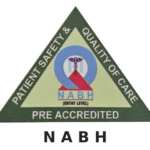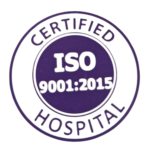Memory Disorder Clinic
Unlocking the Potential: Finding the Best Memory Clinic for Cognitive Health
Seeking out the best memory clinic is a pivotal step in preserving cognitive health and addressing memory-related concerns effectively. Whether you’re grappling with age-related memory decline or more complex neurological conditions, a top-notch memory clinic can offer tailored assessments, innovative treatments, and compassionate support. Here’s a guide to help you navigate the process and find the optimal memory clinic for your needs.
Understanding Best Memory Clinics: Pioneering Care for Cognitive Wellness
Best Memory clinics specialize in evaluating, diagnosing, and managing a wide spectrum of memory-related issues, ranging from mild cognitive impairment to dementia and Alzheimer’s disease. These clinics typically employ multidisciplinary teams comprising neurologists, neuropsychologists, geriatricians, and other specialists who collaborate to provide comprehensive care. Their holistic approach encompasses thorough assessments, personalized treatment plans, caregiver support, and ongoing monitoring to optimize patient outcomes.
Key Considerations in Choosing a Best Memory Clinic
When selecting the best memory clinic for yourself or a loved one, consider the following factors:
Expertise and Reputation: Look for a memory clinic with a strong reputation for excellence in diagnosing and treating memory disorders. Investigate the credentials and experience of the clinic’s healthcare professionals, including their track record in managing conditions similar to yours.
Comprehensive Services: Opt for a memory clinic that offers a wide range of services, including diagnostic evaluations, cognitive assessments, behavioral interventions, medication management, and access to clinical trials. A comprehensive approach ensures that all aspects of your cognitive health are addressed comprehensively.
Patient-Centered Care: Choose a memory clinic that prioritizes individualized care and fosters a supportive environment for patients and their families. Effective communication, empathy, and respect for patient preferences are essential components of patient-centered care.
Research and Innovation: Consider memory clinics affiliated with academic institutions or research centers that are at the forefront of Alzheimer’s and dementia research. These clinics may offer access to cutting-edge treatments, clinical trials, and innovative approaches to memory care.
Finding the Right Memory Clinic for You
Begin your search for the best memory clinic by consulting with your primary care physician or neurologist for recommendations. Additionally, explore online resources, such as healthcare directories and patient reviews, to gather insights into different memory clinics’ reputations and services.
Arrange initial consultations with prospective memory clinics to discuss your concerns, goals, and expectations. Use this opportunity to assess the clinic’s facilities, meet the healthcare team, and inquire about their approach to diagnosis, treatment, and ongoing support.
Conclusion: Empowering Memory Wellness
In conclusion, selecting the best memory clinic is a pivotal step in promoting cognitive wellness and addressing memory-related challenges effectively. By prioritizing expertise, comprehensive care, patient-centeredness, and innovation, you can embark on a journey toward optimizing cognitive function and enhancing quality of life. Remember that early intervention and proactive management are key to unlocking the full potential of memory health.
The neuron’s journey through an unsettled historian

V. D. Pujari
Forgetfulness or difficulty in remembering things is a common problem that can affect all ages. Early diagnosis and treatment is essential for effective management and may prevent further memory deterioration. Memory problems can be due to several reasons like aging, anxiety, stress, depression, early onset dementia (including Alzheimer’s disease), brain attacks (mini strokes), Parkinson’s disease, both prescribed, recreational and illicit drug use, brain infection, trauma, sleep disorders, epilepsy, vitamin deficiencies, heavy metal poisoning, thyroid disorders and other physical diseases affecting the brain.
What is normal?
Certain changes in memory are normal as we grow older, but the symptoms of dementia are more than just simple lapses in memory. Normal age related memory loss does not prevent you from living a full productive life. You just need more time to remember a name or the task you had set out to do. You are aware that you are forgetful.
There are no clear-cut differences between normal changes and warning signs. It’s always advisable to check with your doctor if a concerned person’s level of function seems to have deteriorated from a previous functioning level. It is important that people diagnosed with dementia receive information, care and support as early as possible.
Memory loss – when to seek help?
People with memory loss due to something other than normal aging experience memory loss along with loss of other mental functions like difficulties in communicating, learning, thinking and reasoning. Memory loss is often prominent as an early sign and memory loss associated with dementia gets worse over time, but it certainly is not the only symptom of the disease. Some of the earliest signs and symptoms of dementia include.
Memory loss- forgetting recently learned information. One may experience difficulty learning new material or remembering recent conversations and events. Soon a person begins to forget past events too like forgetting names of loved ones.
Difficulty with language- forgetting simple words and substituting them with unusual words like ‘kleeza’ for ‘shirt’, and for example they may find it difficult to find certain things and instead ask for ‘‘that thing with which we write’’. This becomes more frequent with time, often making their speech and writing difficult to understand.
Disorientation of time and place- problems with regard to time concepts are also common with one often having trouble with what time of the day it is.
Familiar places like the person’s own neighborhood or street may all of a sudden look strange and become very unfamiliar to them, often forgetting where they are or how they got there not knowing how to get back home.
Problems performing familiar tasks- familiar tasks like preparing a meal or performing a routine chore like placing a telephone call starts becoming worse as the disease progresses. People with dementia will often find it very difficult to complete a task and find planning things extremely difficult.
Poor judgment and insight- underestimating the risks involved in certain activities like driving. Exhibiting little or no awareness of their memory deficits. Making decisions in-congruent to their disease condition like venturing out on a new business or giving away large sums of money.
Misplacing things– keeping things in unusual places like keys in a jar, misplacing valuables, forgetting to turn off the stove after use are all common.
Changes in behavior and personality- mood swings are rapid and unpredictable with periods of being extremely happy or calm to becoming angry and irritable for no reason. Changes in their personality too are noted with time like being extremely confused, suspicious, paranoid and dependent on the caregiver.
Loss of motivation- a person with dementia may become very passive and not want to participate in even personal chores like taking care of themselves. Lack of interest in everything around them becomes common and after a period they often become very passive and aloof.
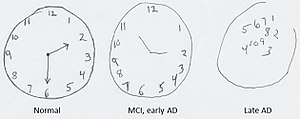
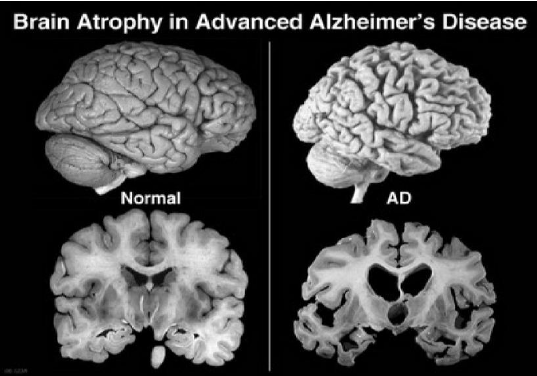
The Memory Clinic at Lake City Hospital, provides comprehensive diagnostic and treatment services for persons with memory disorders.
Ours is a holistic and integrated multi-disciplinary care provided by experts in the field of neuropsychology, neurology, neuroimaging and cognitive rehabilitation.
The Memory Clinic is headed by Dr. Varsha Dutta Pujari, and has been founded on the recognition of a need for highly specialized and integrated approach dedicated to the diagnosis and management of memory disorders.
We provide a multi-disciplinary evaluation and treatment for Alzheimer’s disease and other neurological disorders that affect memory.
Any adult who is experiencing memory problems can benefit from our services. Some of the neurological conditions we treat are
- Alzheimer’s disease
- Vascular (stroke related) dementia
- Lewy body dementia
- Front-o-temporal dementia
- Pick’s disease
- Mild Cognitive Impairment
- Hydrocephalus
- Substance induced persisting dementia
- HIV disease
- Primary progressive aphasia
- Corticobasal degeneration
- Head trauma
- Dementia associated with Parkinson’s disease
- Huntington’s disease
- Multiple sclerosis and demyelinating disorders
- Memory disorders secondary to sleep disorders
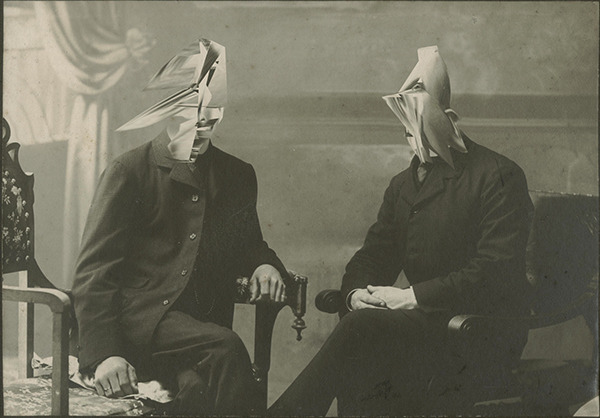
” M when did you start chewing the exact hour? “
V.D. Pujari
Clinic Services
Our patient care approach is egalitarian and holistic and it is our concern to convey the relevant information and education regarding the cause and management of memory problems that takes into confidence the patient and their family members which is why our primary goal is to build a relationship on trust and empathy that allows forward planning based on the most advanced assessment and treatment techniques available.
The initial consultation involves a medical review and a comprehensive neurological evaluation, a mental health evaluation, and a memory and cognitive screening evaluation.
Further comprehensive assessment procedures include:
- Comprehensive baseline neuropsychological evaluation along with computer-based
- Diagnostic memory and high domain cognitive function assessment and psychological assessment for depression and anxiety
- Laboratory tests
- Structural & functional brain imaging (CT/MRI,
- Doppler carotid ultrasound, EEG)
- Interviews with family& caregivers
- Long term Follow-up & Care including Home Visits by our Palliative team
- Workshops on art & music
- Regular support group meetings
At a second consultation the results of all tests are reviewed with the patient (and family) and a diagnosis is established.
A personalized memory management plan is then developed to minimize risk factors and to augment protective factors for memory function.
Treatment options include:
- Prescription of memory enhancing drugs.
- Computer based memory and attention (verbal & visual) training programs.
- Reducing dementia and vascular risk factors.
- Vitamin B12, B6, folate and other vitamin supplementation as appropriate
- Dietary advice
- Psychotherapeutic management of anxiety, stress and depression.
- Appropriate fitness training advice and relaxation therapy (yoga therapy).
- Education for patient and family.
- Counseling by our Patient Care Coordinator about workshops & support group meetings including outreach programs.
Referrals are welcome from local doctors/ GP’s. Self-referrals are also accepted.

